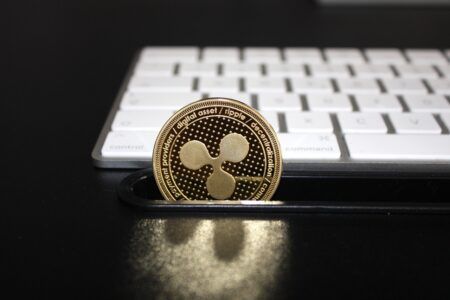On Thursday (February 11), at PayPal’s “2021 Investor Day” event, Jonathan Auerbach, EVP and Chief Strategy, Growth and Data Officer, talked about his firm’s initial experience with offering crypto services and longer term plans.
As you may remember, on 21 October 2020, payments firm PayPal Holdings, Inc. announced a major move into crypto. According to PayPal’s press release, “the migration toward digital payments and digital representations of value continues to accelerate, driven by the COVID-19 pandemic and the increased interest in digital currencies from central banks and consumers.”
PayPal’s new service, which was launched in the U.S. on that day (albeit initially only for a small set of invited users), would allow its customers to “buy, hold and sell cryptocurrency directly from their PayPal account.” Furthermore, PayPal said that it planned to “significantly increase cryptocurrency’s utility by making it available as a funding source for purchases at its 26 million merchants worldwide.”
Dan Schulman, President and CEO, PayPal, had this to say:
“The shift to digital forms of currencies is inevitable, bringing with it clear advantages in terms of financial inclusion and access; efficiency, speed and resilience of the payments system; and the ability for governments to disburse funds to citizens quickly.
“Our global reach, digital payments expertise, two-sided network, and rigorous security and compliance controls provide us with the opportunity, and the responsibility, to help facilitate the understanding, redemption and interoperability of these new instruments of exchange.
“We are eager to work with central banks and regulators around the world to offer our support, and to meaningfully contribute to shaping the role that digital currencies will play in the future of global finance and commerce.”
The supported cryptoassets currently supported are Bitcoin (BTC), Ethereum (ETH), Bitcoin Cash (BCH), and Litecoin (LTC)—users can buy, sell, and hold these cryptocurrencies “directly within the PayPal digital wallet”—and at the moment the only supported jurisdiction is the U.S. PayPal also mentioned that it planned to “expand the features to Venmo and select international markets in the first half of 2021.”
Well, yesterday, during a fireside chat (“Our Strategies for Increasing Consumer Engagement”), Auerbach spoke about PayPal’s initial experience with offering crypto services and his company’s longer term vision for digital currencies:
“We’re really excited about enabling PayPal customers to buy hold and sell cryptocurrencies in their digital wallets. This, as you mentioned, is only the first use case for crypto and digital currencies for PayPal. That said, even as a first use case, our early results are incredibly strong, and frankly have exceeded all of the expectations that we had for this use case.
“The number of daily users of crypto services continues to grow rapidly. Every day, we’re seeing an incredibly healthy influx of first time users and increased engagement once they’ve made their first crypto purchases. Customers who have purchased crypto have been logging into PayPal at roughly twice their login frequency prior to actually having purchased crypto, which is amazing.
“This year, though, we’re going to be, as you mentioned, increasing access to crypto and digital currencies to more customers around the world, and we will be enabling crypto as a funding instrument for transactions at millions of businesses around the world. So, if you even just think about the roadmap for the first half of 2020… we’re going to see crypto and Venmo on track to go live in the first half of the year, we’ve got crypto as a funding instrument for commerce going live in several months, and we plan to expand our crypto offering geographically to the UK in a number of months as well.
“So look, we’re still at the early days of our development of our crypto aspirations, but we really do believe that digital currencies, CBDCs, and the collaboration with central banks and regulators will open new ways to exchange value and power global commerce and financial services for entirely new segments of the population.
“And as I talked about before, crypto services will broaden the range of financial services offered through the PayPal and Venmo apps, and that’s going to support the transformation of those apps into being destination apps, not only for financial services, but for commerce. In addition, we’re actually looking at our crypto services to help position PayPal to help shape the role of cryptocurrencies and CBDCs in consumer payments, commerce and financial services safely and securely.”








